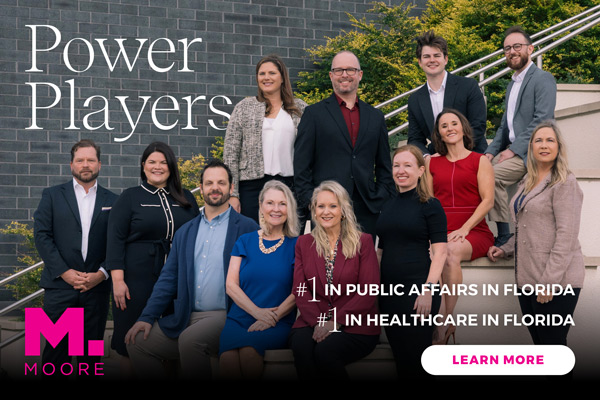Politics
Across U.S., state lawmakers lining up to join immigration battle
Published
17 hours agoon
By
May Greene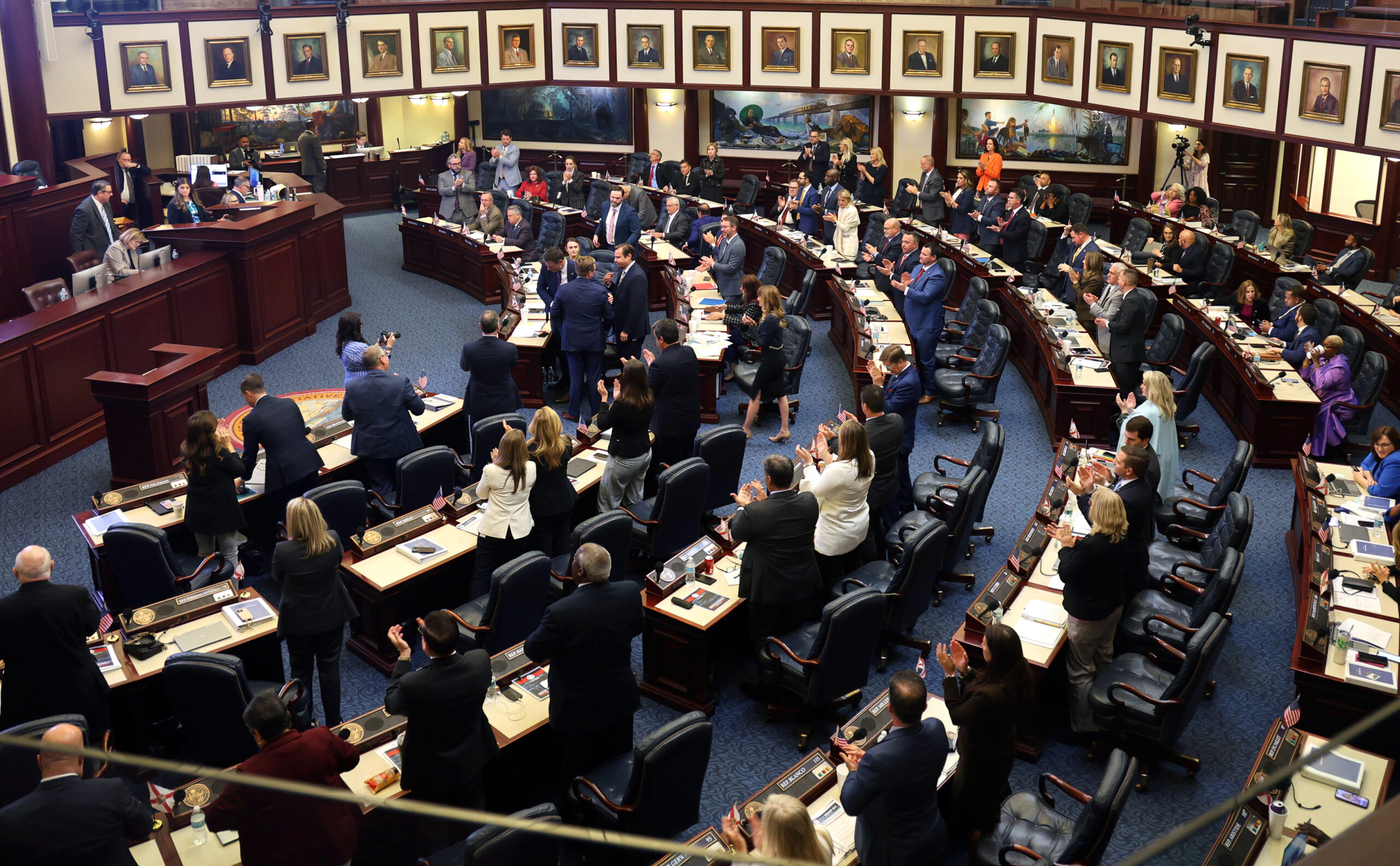
State lawmakers across the United States are considering bills that would assist President Donald Trump’s promise to deport millions of people who are in the country illegally. Dozens of proposals require state and local officials to cooperate with federal agencies’ crackdown on illegal immigration.
Proposals include prohibitions on cities adopting so-called sanctuary policies and new laws allowing authorities in states to arrest people they suspect are in the country illegally.
Local officials could face fines or other penalties for refusing to cooperate with U.S. Immigration Customs and Enforcement (ICE) under a number of measures across the United States.
The Statehouse Reporting Project at the University of Missouri analyzed 223 bills across 35 states related to immigration enforcement. Most bills, 76%, sought to aid the Trump administration’s efforts.
Ramping up deportation is politically popular in the country. Two-thirds of Americans support deporting people who are in the U.S. illegally, according to an Axios/Ipsos poll conducted in January. When presented with specific deportation proposals, support declines significantly.
In 18 states, our search turned up only bills that would strengthen immigration enforcement and no bills supporting immigrant rights.
At least 17 bills would require state and local officials to provide information to or cooperate with ICE.
Twenty-two more bills would either bar cities from adopting sanctuary policies — measures that are favorable to immigrants — or divert state funding should the municipalities adopt such policies.
Immigration was once the purview of the states. As early as the mid-1800s, Massachusetts used taxpayer money to deport Irish immigrants who sought refuge from the potato famine.
In contemporary history, a 1996 federal law strengthened the federal government’s role in immigration. Part of that law enabled the states to collaborate with federal agencies. “That authority largely sat there unused,” said Michelle Mittelstadt of the Migration Policy Institute.
That changed after 9/11, when state, local and even university police worked with the federal government to combat and police terrorist activity. Local and state law enforcement increasingly shared information, including fingerprints, of people booked on both minor and serious crimes with ICE.
“These people ended up hoovered into the deportation pipelines, regardless of the severity of the offenses on which they had been brought in,” Mittelstadt said. This collaboration has waxed and waned over the last three presidential administrations.
At least seven bills across five states would criminalize entering a state as an undocumented immigrant. Those found guilty would face a fine up to $100,000, plus prison time or deportation. The bills mirror a Texas law currently on hold pending a lawsuit.
Proposals in several states would create the Interstate Compact for Border Security, an interstate immigration treaty. Bills with similar language have passed in Texas, Georgia, Oklahoma, Iowa, Missouri and Tennessee, Missouri state Sen. Jill Carter told the state Senate public safety committee at a Jan. 27 hearing.
“Missouri also has a responsibility to protect its borders and ensure the welfare and security of its residents,” Carter told the committee.
At least two states have hardline immigration bills with the acronym TRUMP.
A spat between Florida’s GOP-led Legislature and Republican Gov. Ron DeSantis has jeopardized the Legislature’s Tackling and Reforming Unlawful Migration Policy Act, or TRUMP Act.
Lawmakers passed the measure Jan. 28. DeSantis criticized the legislative package as “weak, weak, weak” and threatened to veto it. On Monday — nearly two weeks after they passed the bill — Florida lawmakers still hadn’t submitted it to the Governor’s Office for him to sign or veto.
Among its proposals: the death penalty for immigrants in the U.S. illegally and convicted of capital offenses, such as raping or murdering a child; money to state and local law enforcement enforcing immigration laws; and making it a felony for non-citizens to vote in elections.
Florida is among states seeking to compel employers to report the immigration status of job applicants.
Tennessee is challenging a 1982 Supreme Court decision by introducing a bill that would allow school districts to deny enrollment to undocumented students. The bill comes on the heels of a separate bill proposed in January called the “Tennessee Reduction of Unlawful Migrant Placement Act” or TRUMP Act, which would require undocumented immigrants to pay for their children’s attendance at public schools.
Tennessee lawmakers are also proposing the Tennessee Illegal Immigration Act, which would require law enforcement to hold detainees for ICE. If the person is not taken into federal custody, law enforcement would transfer them to a sanctuary city.
Under another bill passed by both chambers, public officials in Tennessee who outwardly support sanctuary policies could face a six-year prison sentence and a $3,000 fine.
Republican state Sen. Todd Gardenhire split from his party on the House floor to oppose the measure. “If we’re telling an elected official ‘You can’t cast a vote,’ that to me is not part of being a republic,” Gardenhire said.
Kansas Senators recently voted 31-9 to approve a resolution encouraging the Governor to cooperate with the Trump administration on immigration, including using the Kansas National Guard. Another Kansas measure bans companies from hiring “unauthorized aliens.”
Kansas is one of many states considering a bill that links undocumented immigrants to voting. Opponents contend the measures play into fallacious theories that large numbers of undocumented immigrants vote.
“You don’t have to be a citizen to get an ID in Kansas,” said Kansas state Rep. Pat Proctor, who introduced a measure aimed at investigating undocumented immigrants on voter registration rolls. “Folks that are not citizens could already be accidentally signing up to vote. The truth is we don’t know that it isn’t a problem.”
Michigan House Republicans want to amend the state constitution so residents are required to prove their citizenship before voting.
No attempts to tighten immigration advanced in the Virginia General Assembly this Session.
However, state Attorney General Jason Miyares said Virginia’s law enforcement professionals have “both the authority and a moral duty” to cooperate with lawful federal immigration orders. “I understand immigration in a way few others do,” Miyares said. His family immigrated from Cuba.
In January, the newly elected Governors of Indiana and Missouri both signed executive orders directing state law enforcement agencies to enforce federal immigration policies.
Indiana’s supermajority Republican General Assembly is considering more than 10 immigration bills. One would require law enforcement to report anyone they arrest whom they believe to lack permanent legal status.
Some states are pushing back.
Twenty-one percent of the bills analyzed by the Statehouse Reporting Project are in direct opposition to immigration enforcement efforts or seek to aid undocumented immigrants living in the country.
Some of these proposals are symbolic gestures. A measure in Arizona, a state with an equal number of bills supporting and opposing immigration, would replace “alien” with “immigrant” in state statutes.
Other measures seek to directly counter immigration enforcement. At least 12 bills are attempts to prohibit or limit state and local officials from cooperating with ICE.
Detention Watch Network, a group focused on ending immigrant detention, is pushing for proactive legislation limiting enforcement in three areas: keeping ICE out of sensitive areas like churches and schools, data privacy to limit government agencies from sharing information with ICE, and limiting state cooperation with ICE.
“Right now, enforcement is what we should prioritize to avoid people going through the detention and deportation pipeline,” said Luis Suarez, senior field advocacy manager for the network.
New York had the most bills, 15, opposing the Trump administration’s efforts followed by Hawaii and New Jersey. Democrats control both chambers and the Governorship in all three states.
New Mexico Democrats, who hold the Governor’s Office and majorities in both houses of the Legislature, are working to protect undocumented immigrants. Only about 10% of the population in New Mexico is foreign born.
One bill would give undocumented students access to in-state tuition rates and state scholarships that can pay full tuition. “We have folks who are working maybe one or two minimum wage jobs, have a family, and this bill would allow them the opportunity to pursue a higher degree, to improve their skills,” said the bill’s sponsor, state Rep. Eleanor Chávez.
Another bill would make it easier for immigrant victims of crime to get U visas, available to crime victims. Two other measures limit disclosure of a person’s immigration status to a third party.
Massachusetts has come far from its days deporting Irish immigrants. This year’s focus has been on the management of emergency assistance shelters filled to overflowing by migrants drawn to the state by a 40-plus year-old right-to-shelter law. The law targets families and pregnant women. The influx prompted Democratic Gov. Maura Healey and the Democratic supermajorities in the House and Senate to work to tighten requirements. Members of the very small Republican delegations have called for its repeal.
In the Legislature, the GOP is sponsoring measures to require state law enforcement to cooperate with ICE, a particularly sore spot after a municipal Judge allowed an undocumented immigrant to slip away through a backdoor while an ICE agent waited for the man charged with drug possession.
Legislative Democrats, on the other hand, have refiled measures to prevent cooperation with immigration-related police activity and to ensure detained immigrants have access to legal representation by allocating state funds for legal services.
Around 10 a.m. on a recent Wednesday morning, Suarez of Detention Watch Network drove home from his gym in Ontario, California, when he saw four men running across the street. “They literally ran through traffic,” he said.
Ontario is about 100 miles from the U.S.-Mexico border. Unmarked cars had pulled up in front of Farmer Boys, a California burger chain. Employees, mistaking the unmarked cars for ICE, took flight, pulling off their aprons as they ran.
After checking the cars and officers who huddled in the restaurant parking lot, Suarez went to find the men. They hesitated as he approached. He saw fear in their faces. The unmarked cars belonged to probation officers, he told them. And in California, state and local law enforcement are limited from collaborating with ICE because of state legislation passed in 2017.
“The biggest shock for me was the amount of fear that I could see,” Suarez said. “That spoke to the fear mongering that we’re feeling now.”
___
This story distributed by Fresh Take Florida, a news service of the University of Florida College of Journalism and Communications, is a collaboration. These journalists contributed to the reporting: Samantha Granados from VCU Capital News Service; Natalie Pursche from the University of Kansas; Mia Casas from the University of New Mexico; Katie Beth Cannon, Madeleine Bradford, Maya Burney, Bree Fabbie, and Lauren Haney from Belmont University; John Osmond from Capital News Service/Spartan Newsroom in Michigan; Anna Cecil from The Statehouse File at Franklin College in Indiana; the Boston University Statehouse Program; and Anna Sago and Adan Pittman from the University of Missouri. Thompson can be reached at [email protected]. You can donate to support our students here.
Post Views: 0
You may like
Politics
Checking the pulse of Florida health care news and policy
Published
6 hours agoon
February 10, 2025By
May Greene
Welcome back to Diagnosis, a vertical that focuses on the crossroads of health care policy and politics.
— Medicaid changes —
Florida’s Medicaid managed-care system will undergo significant changes this month, including implementing new and streamlining the number of Medicaid regions in the state.
Under legislation approved in 2022, the state is trimming the number of Medicaid managed-care regions from 11 to nine, and the new areas will carry a letter identifier (A through I) rather than the previous system’s numbered naming scheme.
The regional shift impacts North Florida, where the old Regions 1 and 2 in the Panhandle combine into the new Region A, and the old North Central Florida-based Region 3 and the Jacksonville-anchored Region 4 merge into Region B.
The shift coincides with the implementation of new managed-care contracts awarded by the Agency for Health Care Administration last year after a lengthy procurement process.
The contracts were awarded to Aetna Better Health of Florida, Florida Community Care, Humana Medical Plan, Molina Healthcare of Florida, Simply Healthcare Plans, South Florida Community Care Network (d/b/a Community Care Plan), Sunshine State Health Plan, and United Healthcare of Florida.
The Medicaid managed-care system services more than 3 million of the approximately 4.4 million Florida Medicaid recipients.
— Butt surgery legislation —
Freshman Rep. Richard Gentry has filed a bill aimed at improving patient safety for in-office surgeries such as “Brazilian butt lifts” (BBL).
HB 309 mandates that medical offices undergo annual inspections by the Department of Health. Facilities must also meet registration requirements, including evaluations by the Joint Commission on Accreditation of Healthcare Organizations.

Other key provisions in the bill:
— In-person evaluations and supervision: BBL procedures would require in-person evaluations, written patient consent, and supervision by a licensed physician. All health care professionals must be licensed or certified and trained in advanced cardiac life support.
— Surgical timing and reporting: The bill permits office surgeries only during regular office hours. Any hospitalization must be reported within 48 hours.
— Operational restrictions: Surgeries cannot occur during structural renovations, and offices must maintain critical care equipment on-site.
— Oversight committee: The legislation establishes an oversight committee responsible for monitoring compliance and reporting any violations.
— Insurance requirements: Physicians performing these procedures must carry a minimum of $1 million in medical malpractice insurance or demonstrate financial responsibility.
The bill is named “Hillary’s Law” in memory of Hillary Brown, who died a week after experiencing a seizure and cardiac arrest suspected to be linked to lidocaine toxicity during a cosmetic procedure conducted by her husband, Dr. Ben Brown, at his practice, Restore Plastic Surgery, which has since closed. Reports indicate that Brown delayed calling 911, and the incident is currently under state investigation.
This new measure builds on a 2024 law designed to address gaps in regulations surrounding in-office surgeries and gluteal fat grafting procedures. The previous legislation (HB 1561) specified that all medical offices must register with the state if they remove fat from patients. It changed the fines for noncompliance from $5,000 per day to $5,000 per violation. The law also required physicians performing BBLs to hold professional liability insurance.
— Budget busting —
After Gov. Ron DeSantis announced his new budget proposal for Fiscal Year 2025-26, certain health services could be reduced, but others would receive a boost.
The Governor’s budget recommendations for Health and Human Services focus on behavioral health, cancer research, substance use issues, seniors and their caregivers, those with unique abilities and survivors of human trafficking.
However, while the proposed budget would boost funding for cancer research and other initiatives, some programs geared toward local community health initiatives could be affected.

The state allocated $4.28 billion for health care in the 2024 budget. This year’s budget recommendations include reducing health spending by $458 million to $3.8 billion and redirecting some funding from existing health care programs into new initiatives.
The Children’s Medical Services Program would get cut from a $399.6 million allocation in the current year’s budget to $211.5 million — a $188.1 million reduction in proposed funding.
The Community Public Health Program would see an overall $260.8 million cut from $3.47 billion to $3.21 billion. Services within the program, such as community health promotion, would be reduced by $478.6 million. Approximately $355.5 million would shift into Public Health Statistics and Innovation.
Funding for the local health needs of County Health Departments would be reduced from $1.23 billion to $1.22 billion, a $7.7 million difference, while the Disability Benefits Determination Program would see a $25.88 million cut, being pared down from $174.4 million in the current budget, to $148.6 million.
DeSantis’ “Focus on Fiscal Responsibility Budget” appropriates $115.6 billion, $3 billion lower 2024’s budget.
— Baptist Health —
One of Jacksonville’s largest hospitals is going to get substantially larger.
Baptist Medical Center Jacksonville and Wolfson Children’s Hospital will undergo a $190 million addition for the hospital grounds on the Southbank of downtown. When completed, the additional space will end with a new four-story tower, bringing 123,000 square feet more space.

The additions will bring more emergency room operations, waiting areas and patient care rooms. In all, there will be 100 emergency rooms in total. Some 63 ERs will be for adults and 37 for children. Three of the rooms will treat pediatric trauma on the first floor.
Work on the expansion begins this year, and its expected completion date will be in 2027.
“Our main campus provides care for more emergency patients than any other hospital in the greater Jacksonville area,” said Michael A. Mayo, president and CEO of Baptist Health. “We feel strongly, and our Board wholeheartedly agrees, that it is critical to ensure we not only provide the best quality of care but also make the experience the best it can be for our patients and caregivers alike. We challenged ourselves to do more than expand and renovate what exists today – instead, we are reimagining the entire environment of care.”
— Roster —
A new head and neck specialist joins HCA Florida Memorial Hospital in Jacksonville.
Russell B. Smith is the latest addition to the hospital’s dedicated care team. His expertise is in advanced surgical care for conditions in patients’ head and neck regions. His area of treatment is relatively broad, including treating cancers in the head and neck and associated areas such as the mouth, throat, voice box, sinonasal cavities, and skin, as well as other places.

“We understand that being diagnosed with cancer is life-changing. We are committed to taking a personalized approach to provide multidisciplinary care for each of our patients, making sure they understand all options to therapy,” said Smith. “At all times, our patient’s care and comfort is our highest priority, and our entire team works diligently to ensure that each patient and their entire family are supported throughout the process.”
Smith’s practice will be in the Head & Neck Specialists wing of HCA Memorial Hospital located at University and Beach Boulevards in Jacksonville.
— ICYMI —
“Ben Albritton prioritizes autism help, backs new bill” via Gabrielle Russon of Florida Politics — A new bill backed by Senate President Albritton would provide more support for parents who have children with autism and would expand existing free state services. Sen. Gayle Harrell filed SB 112, extending the Early Steps program availability until a child’s fourth birthday, from its current expiration at age three. It would also make other changes to help charter schools and summer camps designed for autistic students. The bill would also expand the health department’s program to include free autism screenings. Albritton called assisting people with autism a legislative priority.
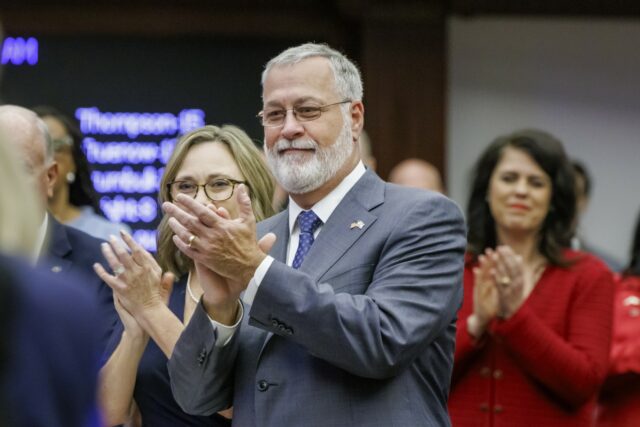
“Keeping kids with disabilities safe: Kristen Arrington and Anna Eskamani file bill” via Gabrielle Russon of Florida Politics — Sen. Kristen Arrington and Rep. Anna Eskamani want the state to require schools to have a plan already in place if a student escapes during the school day. Eskamani called HB 345 and SB 460 “lifesaving.” Under their plan, every school district would be required to set up a staff assistance for emergencies (SAFE) team to take action. Every school’s principal, assistant principal, and at least five others picked by the principal would make up the SAFE team and be in charge of developing an annual “elopement plan.” The team would also train the rest of the staff how to do a search grid of school property, including “all bodies of water, intersections, train tracks and stations, parks, playgrounds, and other features that may present a greater risk for students with disabilities at risk of elopement.”
— Rules —
Rule 59G-4.125, regarding the administration of Florida Medicaid behavior analysis services to recipients, goes into effect Feb. 10. More here.
Rule 64B32-6.004, regarding procedures for approval of attendance at continuing education courses, goes into effect Feb. 13. More here.
Rule 64B7-25.001, regarding examination requirements for massage therapists, goes into effect Feb. 13. More here.
Rules 64B7-26.003, regarding massage establishment operations, goes into effect Feb. 13. More here.
Rule 64B5-2.0144, regarding licensure requirements for dental hygiene applicants from unaccredited dental schools or colleges, goes into effect Feb. 20. More here.
— Pencil it in —
Feb. 11
It’s “We Are TGH Day” in the Capitol, highlighting Tampa General Hospital’s status as a leading academic health system. On this advocacy day, patient advocates, loved ones, staff members, and others will travel to Tallahassee to speak with lawmakers about the lifesaving and innovative care they received at TGH. The day will also feature complimentary food trucks on Adams Street between 9 a.m. and 3 p.m.
8 a.m. — The House Combined Workgroup on Vetoed Human Services Budget Issues meets. Room 404, House Office Building.
1 p.m. — The House Health Professions & Programs Subcommittee meets. Room 102, House Office Building.
3:30 p.m. — The House Health & Human Services Committee meets. Room 17, House Office Building.
5:45 p.m. — The House Combined Workgroup on Vetoed Human Services Budget Issues meets. Room 404, House Office Building.
Feb. 12
10 a.m. — It’s “Behavioral Health Day” at the Capitol. The Florida Behavioral Health Association will host a press briefing at 10 a.m. at the Florida Historic Capitol Museum.
8 a.m. — The House Combined Workgroup on Vetoed Human Services Budget Issues meets. Room 404, House Office Building.
9 a.m. — The Social Services Estimating Conference meets to discuss KidCare caseloads. Room 117, Knott Building.
1 p.m. — The House Health Care Budget Subcommittee meets. Room 314, House Office Building.
3:30 p.m. — The House Health Care Facilities & Systems Subcommitteemeets. Room 404, House Office Building.
5:45 p.m. — The House Combined Workgroup on Vetoed Human Services Budget Issues meets. Room 404, House Office Building.
Feb. 13
8 a.m. — The House Combined Workgroup on Vetoed Human Services Budget Issues meets. Room 404, House Office Building.
9 a.m. — The House Human Services Subcommittee meets. Room 314, House Office Building.
9 a.m. — The Social Services Estimating Conference meets to discuss Medicaid caseloads. Room 117, Knott Building.
11 a.m. — The House Combined Workgroup on Vetoed Human Services Budget Issues meets. Room 404, House Office Building.
Feb. 18
Happy birthday to Reps. Doug Bankson, Johanna Lopez and Jenna Persons-Mulicka!
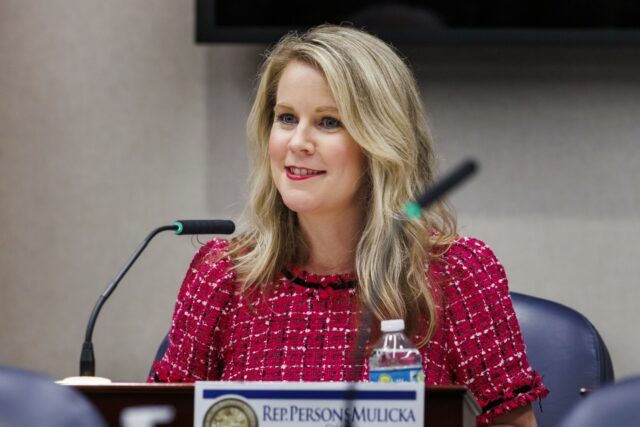
1:45 p.m. — The Senate Health Policy Committee meets. Room 412, Knott Building.
Feb. 19
Happy birthday to Rep. Bill Conerly!
9:30 a.m. — The House Health Professions & Programs Subcommittee meets. Room 102, House Office Building.
1 p.m. — The House Health Care Budget Subcommittee meets. Room 314, House Office Building.
3:30 p.m. — The House Human Services Subcommittee meets. Room 314, House Office Building.
Feb. 20
Happy birthday to Rep. Joseph Casello.
1 p.m. — The House Health Care Facilities & Systems Subcommittee meets. Room 404, House Office Building.
Feb. 21
Happy birthday to Sen. Jay Trumbull!
Feb. 24
9:30 a.m. — The Social Services Estimating Conference meets to discuss KidCare expenditures. Room 117, Knott Building.
Post Views: 0
Politics
Legislators float ‘Lucy’s Law’ to ramp up penalties for reckless boaters, increase safety training
Published
7 hours agoon
February 10, 2025By
May Greene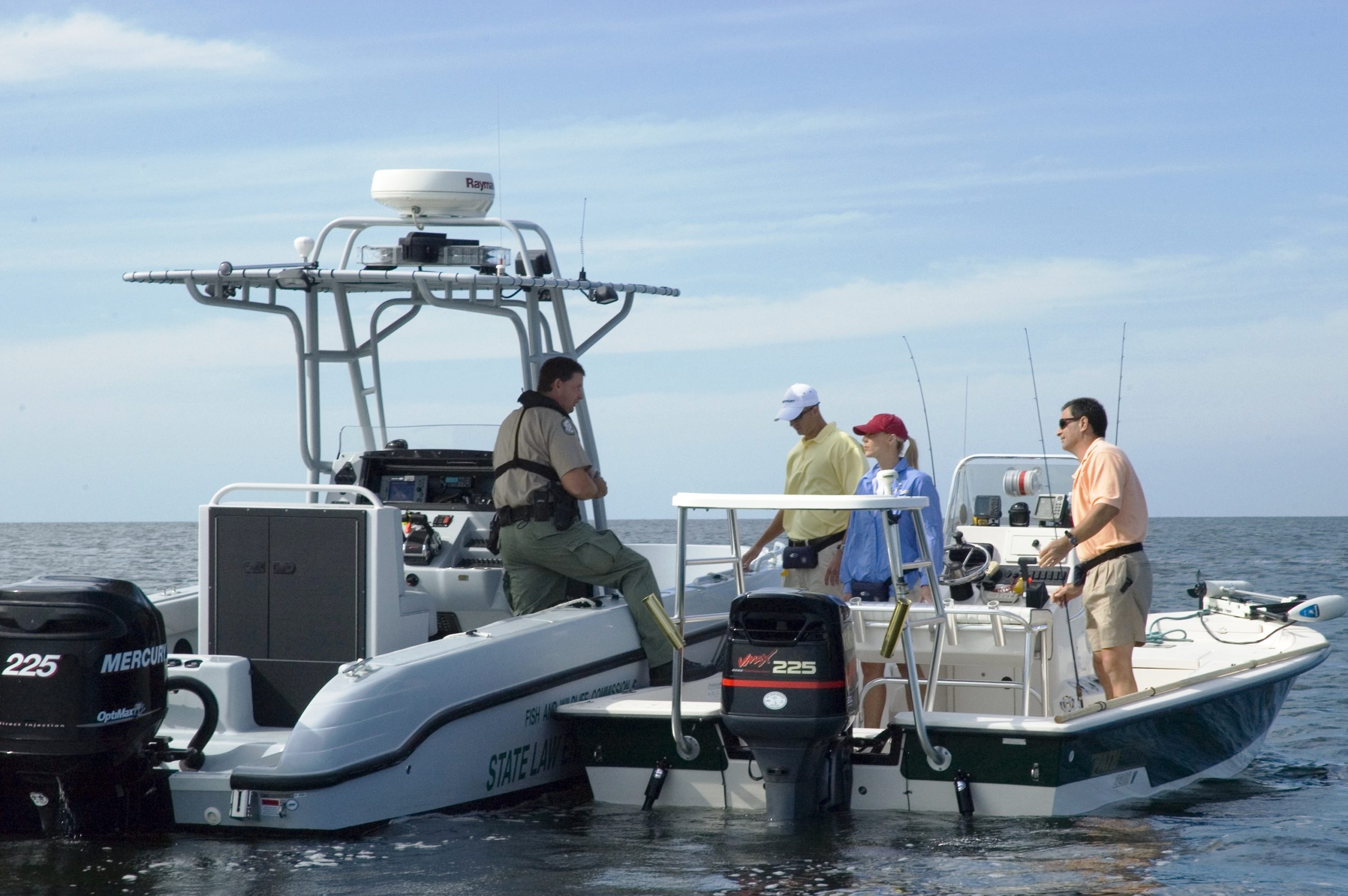
Republican Reps. Vicki Lopez and Vanessa Oliver are pushing legislation to make it safer to enjoy Florida’s waterways.
The measure (HB 289) would strengthen penalties for those operating boats recklessly or under the influence. It would also require safety training for all boaters.
“For Floridians, boating is more than just a pastime — it’s a way of life. But with that privilege comes a serious responsibility,” Oliver said in a statement announcing the legislation. “Too many lives are lost each year due to preventable boating accidents, and it’s time for action.”
The legislation is being dubbed “Lucy’s Law,” named after 17-year-old Luciana Fernandez, who died during a September 2022 boat crash that left other passengers injured, including 18-year-old Katerina Puig, who is now permanently disabled.
George Pino is facing homicide charges after operating a boat, where Fernandez, Puig and others were on board, when it violently struck a channel marker. Puig refused a breathalyzer at the time.
“No parent should have to endure the pain of losing a child — especially in a preventable accident. Our family is living proof of what happens when our laws fail to keep up with the times,” read a statement from the Fernandez family.
“It is too late to save Lucy, but it is not too late to protect the next child and family from experiencing this same heartbreak. We are grateful to Representatives Oliver and Lopez for spearheading this effort, and we are honored this bill carries our Lucy’s name.”
The legislation would make accidents in which property damage is involved a first-degree misdemeanor, up from second degree. If someone is hurt, but it’s not a serious bodily injury, prosecutors can charge a third-degree felony. In the event of a serious bodily injury, it’s a second-degree felony, up from a third-degree felony. And accidents involving death would be punishable as first-degree felonies.
Additionally, if a person is found to be boating under the influence or operating recklessly, their license “shall be suspended until all orders of the court have been satisfied.”
Lawmakers say the upcoming Legislative Session is the time to make these changes.
“I am proud to sponsor Lucy’s law,” Lopez said. “This legislation strengthens training requirements to ensure that every boater has the knowledge and skills needed to navigate our waters safely. By making these simple but crucial changes, we can save lives like Lucy’s and protect the memories Floridians make on the water.”
Post Views: 0
Politics
Monique Miller to file open carry legislation in House
Published
7 hours agoon
February 10, 2025By
May Greene
She said current restrictions create particular problems for women gun owners.
An open carry bill will be filed in the House, though its sponsor acknowledges the gun rights legislation may face resistance.
Rep. Monique Miller, a Palm Bay Republican, said she has a bill in drafting that would allow anyone in Florida to openly carry firearms. She said the issue is especially important in the state for women who own guns.
“Sometimes women have to choose between protecting themselves and what they want to wear that day,” Miller said. “Women have to worry that if they have a gun showing they could face 60 days in jail.”
This isn’t the first time there has been a push for open carry legislation in the House. Former Rep. Joel Rudman late last year filed an open carry bill, but it was withdrawn when he resigned from the House to run for Congress.
Meanwhile, Gov. Ron DeSantis has repeatedly said he would sign an open carry bill, and even hinted at calling a Special Session for such a policy when he was running for President in 2023. The same year, he signed a permitless carry measure.
But that Special Session never happened, in part because Senate leadership has remained opposed to taking up such legislation.
Senate President Ben Albritton signaled in November that the upper chamber’s position has not changed.
“I’ve supported law enforcement my entire life. It’s the way I was raised,” Albritton told media, pointing to law enforcement groups that oppose open carry. “And I’ve been super consistent as a legislator to support law enforcement in Florida, and I encourage you to check that record.”
Miller said she recognizes that not everybody in the Legislature thinks the time is right to consider open carry legislation. But she hopes it will be discussed this year.
“It is my sincere hope Florida can join the other 45 states that have some form of open carry in the country,” she said.
Post Views: 0


Can you pay your mortgage with a credit card? It’s a bad idea

Aaron Jones Predicts Aaron Rodgers Will Return in 2025 W/ ‘Chip on His Shoulder’

Gucci drags Kering down, but YSL, Bottega Veneta fare better
Trending
-

 Entertainment8 years ago
Entertainment8 years agoThe final 6 ‘Game of Thrones’ episodes might feel like a full season
-

 Entertainment8 years ago
Entertainment8 years agoMod turns ‘Counter-Strike’ into a ‘Tekken’ clone with fighting chickens
-

 Politics8 years ago
Politics8 years agoCongress rolls out ‘Better Deal,’ new economic agenda
-

 Tech8 years ago
Tech8 years agoHulu hires Google marketing veteran Kelly Campbell as CMO
-

 Tech8 years ago
Tech8 years agoMicrosoft Paint is finally dead, and the world Is a better place
-

 Tech8 years ago
Tech8 years agoFord’s 2018 Mustang GT can do 0-to-60 mph in under 4 seconds
-

 Politics8 years ago
Politics8 years agoIllinois’ financial crisis could bring the state to a halt
-

 Tech8 years ago
Tech8 years agoMobile Google CEO Promises 11 Daydream-compatible phones





